Thirteen North Koreans defect from overseas restaurant
- Published
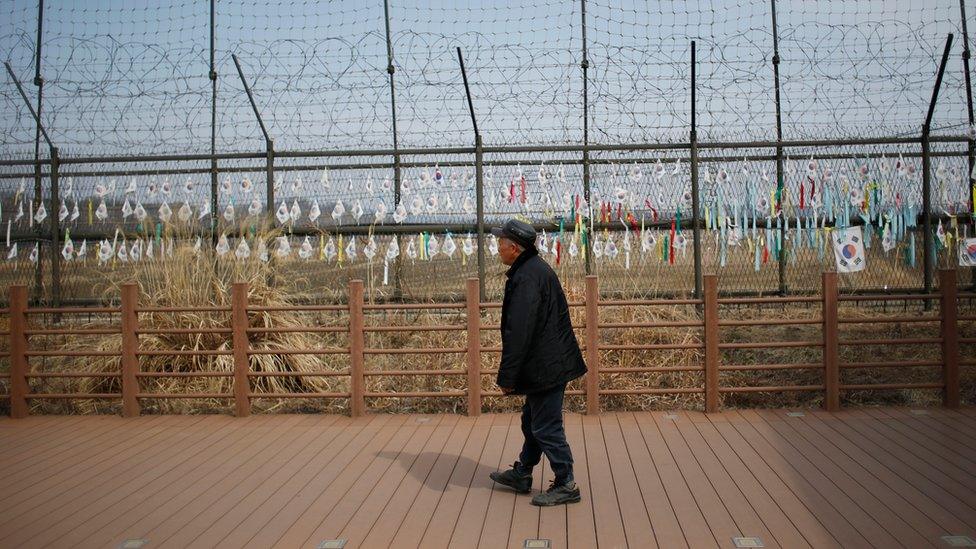
The two Koreas are separated by a heavily fortified, demilitarised zone
Thirteen North Koreans working at the same restaurant abroad have defected to South Korea, Seoul officials say.
People have defected from North Korean restaurants overseas before but this is the first mass escape from the same one, a South Korean official said.
Overseas North Korean workers are usually thought to be chosen largely because of their loyalty.
North Korean defections are a bitter point of contention between the two Koreas.
Pyongyang has accused Seoul of enticing North Korean citizens to defect, something Seoul denies.
South Korean Unification Ministry spokesman Jeong Joon Hee said one man and 12 women arrived in the South on Thursday.
Mr Jeong did not reveal where they were working to avoid causing diplomatic rifts or endangering North Koreans still working in the country.
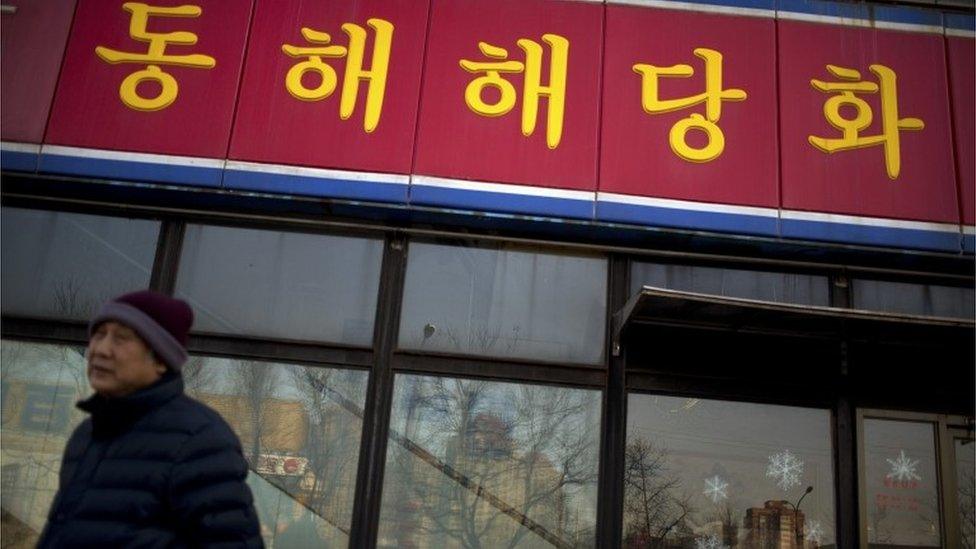
North Korea has several overseas restaurants, including this one in Beijing
According to a staff member at the Crowne Plaza hotel in Danang, Vietnam, a North Korean restaurant there recently closed down and all staff left the country, the Associated Press reported.
It could not confirm a link to the defections.
North Korea is reported to run an estimated 130 restaurants in other countries, primarily in Asia, providing essential hard currency for the regime.
Seoul believes the restaurants have been struggling since new sanctions were applied on Pyongyang following a recent nuclear test.
The defectors said they learned about the South by watching South Korean TV dramas online and began to distrust North Korean propaganda, Mr Jeong said.
The Unification Ministry's website says more than 29,000 North Koreans have defected to South Korea as of March.

North Korea's restaurant empire
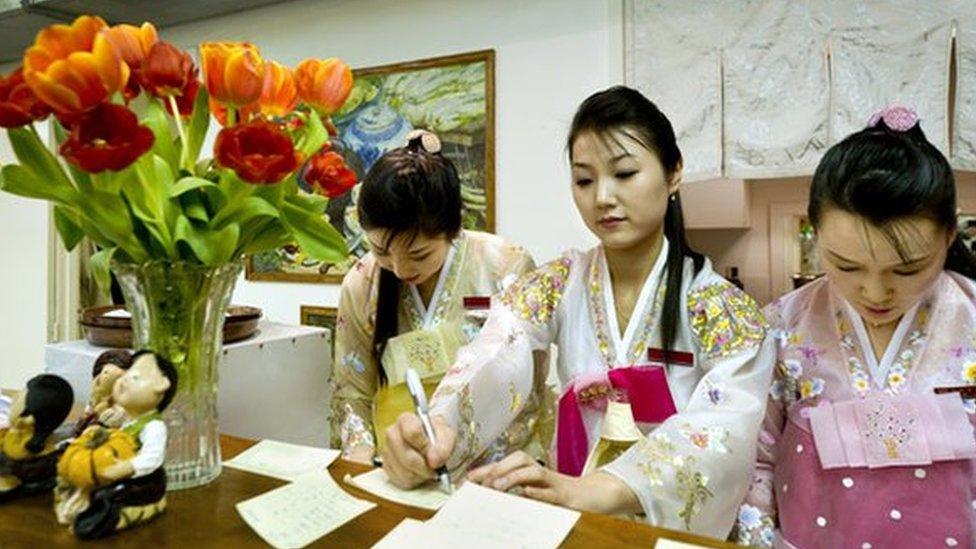
A Pyongyang restaurant opened in Amsterdam in 2012, before closing, and re-opening under a new name
Where are they?
North Korea runs an estimated 130 restaurants in 12 countries, according to South Korean media, external.
Most are in China, but they can also be found in Russia, Cambodia, Mongolia and Vietnam.
Pyongyang's only restaurant in Europe re-opened in Amsterdam in late 2013.
Where does the money go?
The restaurants each send back between $10,000 and $30,000 to Pyongyang each year, defectors and insiders have reported.
Experts say the money is sent to Office 39, a secretive North Korean state arm which the US government says is responsible for "managing slush funds and generating revenues for the leadership".
Who are the staff and how are they treated?
Most workers sent abroad to work in restaurants are daughters of the elite.
They are among up to 50,000 North Korean workers sent to work overseas.
Rights activists say they are not allowed to spend more than three years abroad, and live in tightly controlled conditions.

- Published5 November 2015
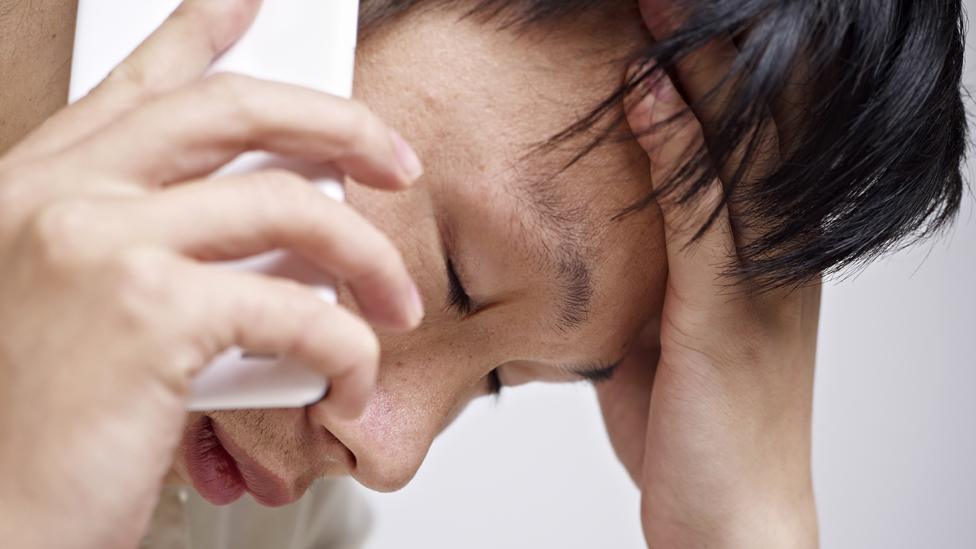
- Published16 March 2015
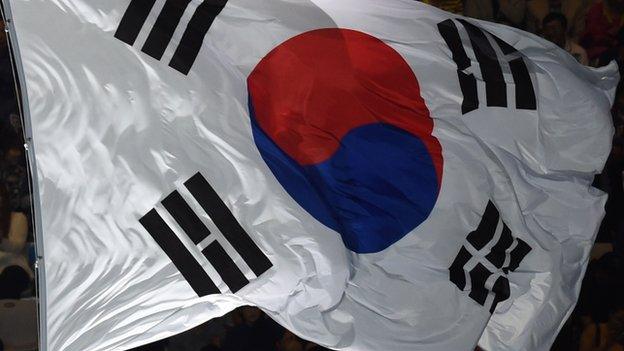
- Published5 March 2014
